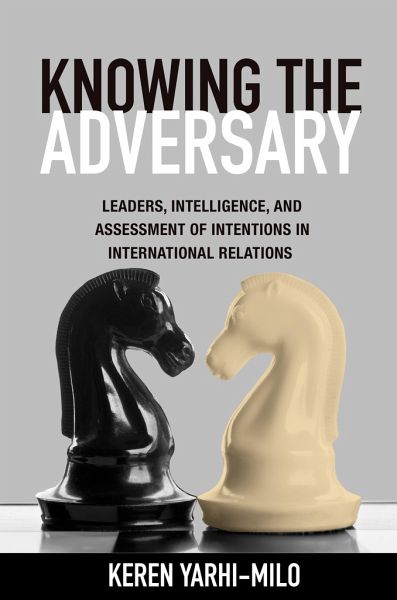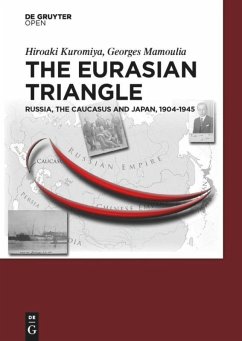
Knowing the Adversary
Leaders, Intelligence, and Assessment of Intentions in International Relations
Versandkostenfrei!
Versandfertig in über 4 Wochen
117,99 €
inkl. MwSt.
Weitere Ausgaben:

PAYBACK Punkte
59 °P sammeln!
States are more likely to engage in risky and destabilizing actions such as military buildups and preemptive strikes if they believe their adversaries pose a tangible threat. This book draws on a wealth of historical archival evidence to shed new light on how world leaders and intelligence organizations actually make these assessments.
"How do political leaders and intelligence organizations make inferences about adversary intentions? Yarhi-Milo makes a major contribution to the study of this critical question by developing a new theory of threat perception and testing it in three important historical cases. With its extraordinarily detailed historical research, extensive coverage of primary sources, compelling evidence, and balanced interpretations, Knowing the Adversary is indispensable reading for conflict theorists, intelligence analysts, and diplomatic historians."--Jack S. Levy, Rutgers University "Threat perception is a central topic for international politics, but is remarkably understudied. Yarhi-Milo's fascinating and important book is a huge step forward. Testing theories based on rational choice, organization theory, and psychology, and using original research on British perceptions of Nazi Germany and American views of the USSR, she shows that decision makers and intelligence analysts looked at different indicators and that the attention paid by both groups was highly selective."--Robert Jervis, author of Perception and Misperception in International Politics "Knowing the Adversary tackles a central question in international security and reaches nonobvious conclusions with wide implications. The quality of the empirical work is outstanding. I can think of few recent qualitative studies that are in its league."--William C. Wohlforth, coauthor of World Out of Balance: International Relations and the Challenge of American Primacy "Knowing the Adversary makes a significant contribution to the literature on how states assess others' intentions. Surprisingly little research has focused as directly and fully on this important question as Yarhi-Milo does here. She looks carefully at a huge amount of evidence. This is an important book."--Charles L. Glaser, author of Rational Theory of International Politics: The Logic of Competition and Cooperation













